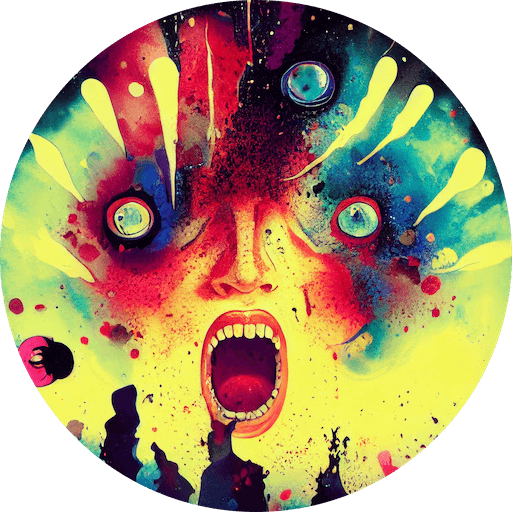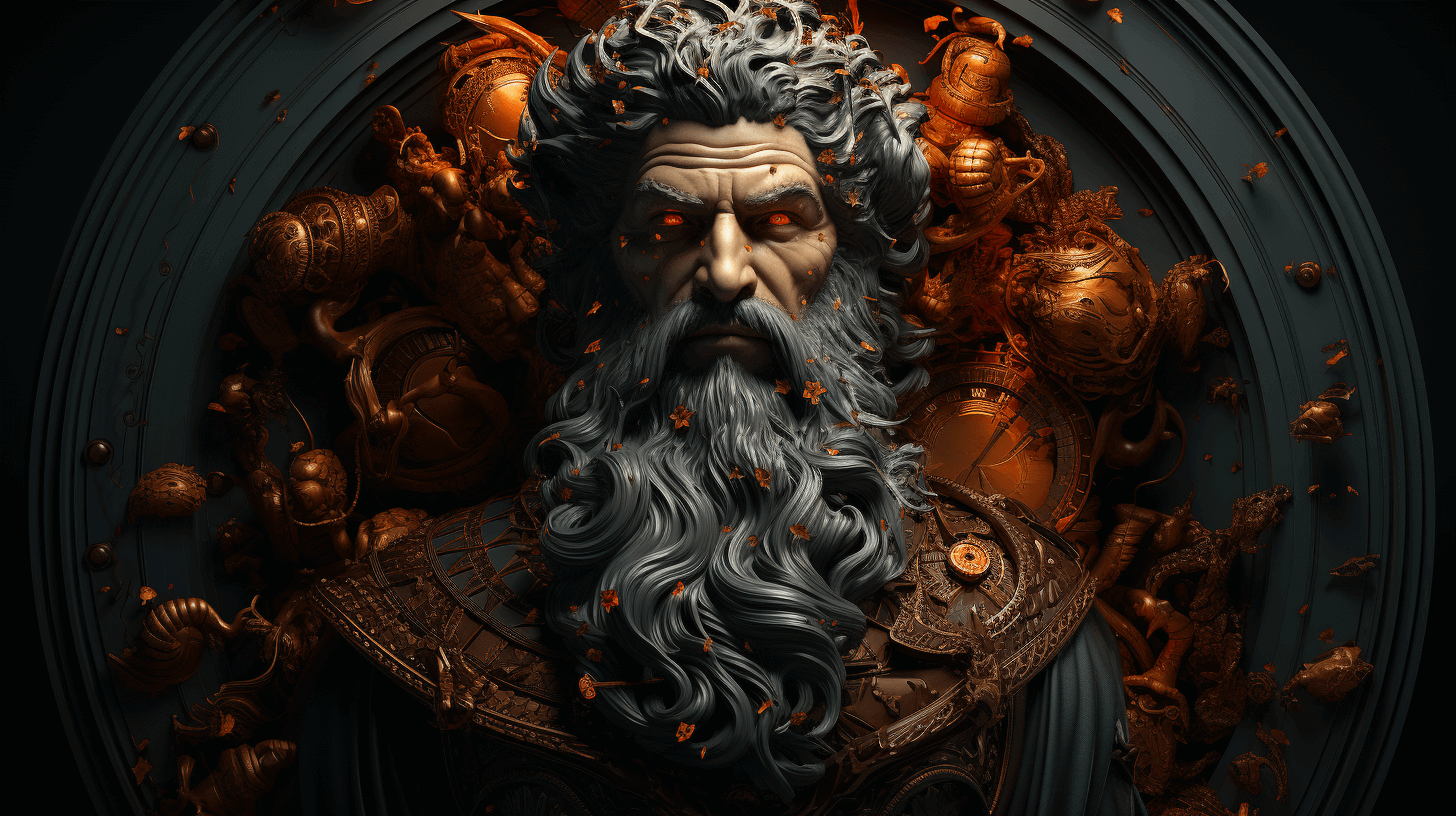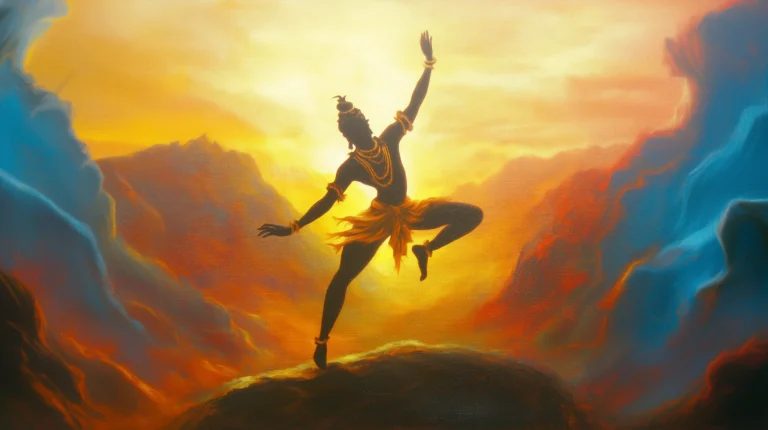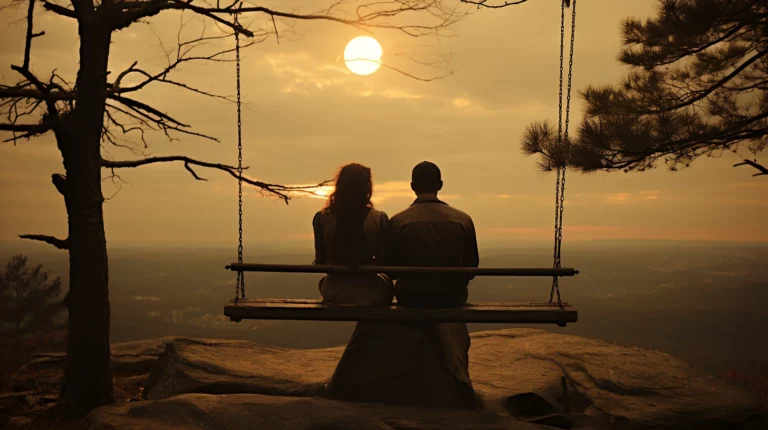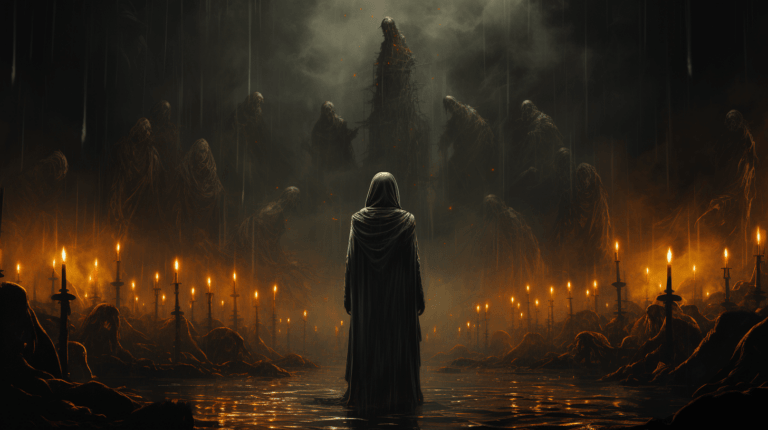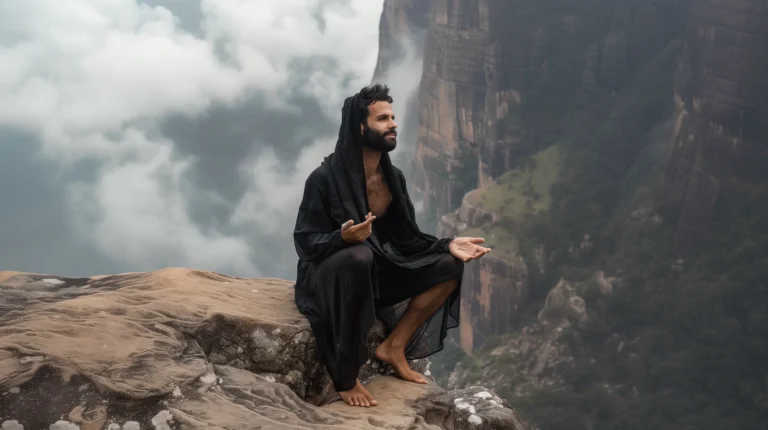The Ultimate Question
In every human heart, at some point, there flickers a question—a question as old as time, as profound as existence itself. “What is the point of life?” This question has coursed through our veins, traveled with us through the epochs, stirred in us a restless curiosity. It has propelled countless souls to explore the unknown, to create masterpieces, to search the cosmos and the corners of our minds.
Our quest for answers has birthed entire disciplines—philosophy, science, religion—all tools we’ve forged in the crucible of curiosity, all lenses through which we attempt to bring the question into focus. Yet, the answer often seems just out of reach, a mirage wavering in the desert of our understanding.
The “point” of life is like a multi-faceted jewel, radiating different meanings in different lights. To some, it appears as an existential puzzle, an inscrutable mystery. Why are we here? What is our role in the vast dance of the cosmos? Others see it as a religious quest, a path laid down by divine forces, a destiny written in stars or scriptures. Then there are those who search for the point of life in the fabric of the natural world—in the twirling double helix of DNA, in the pulsating brilliance of a supernova, in the intricate interplay of ecosystems.
The answers we find often seem as varied and numerous as the stars in the night sky. But what if the answer, the true point of life, was not to be found out there in the vast expanse of the universe, but within the uncharted territories of our own consciousness? What if we’ve been gazing at the stars for so long that we’ve forgotten to look into the mirror? What if the real question was not “What is the point of life?” but “Who am I?”
This book, then, is a voyage—an invitation to embark on the greatest journey there is: the journey inward. It is an exploration of the idea that the purpose of life may not lie in an external answer, but in understanding ourselves—who we are at the core. As we peel back the layers of our identity, as we delve deeper into our consciousness, we might just stumble upon the elusive answer we’ve been seeking.
We’ll traverse a vast intellectual landscape, venturing through philosophy, religion, science, and most importantly, our inner worlds. We’ll be guided not just by thinkers, poets, and scientists, but also by the wisdom we carry within us, waiting to be discovered.
In the pages that follow, we’ll grapple with some of the most profound questions that have ever puzzled humanity. We’ll embark on a quest, not for the faint of heart, but for the bold, the curious, the open-minded—those who have the courage to ask, to seek, to knock.
So, as you turn these pages, remember this: The journey is vast, the question is profound, and the answer may well be closer than you think. Welcome to the voyage of your life. Let’s begin.
Chapter 1:
The Existential Dilemma – Embracing the Question
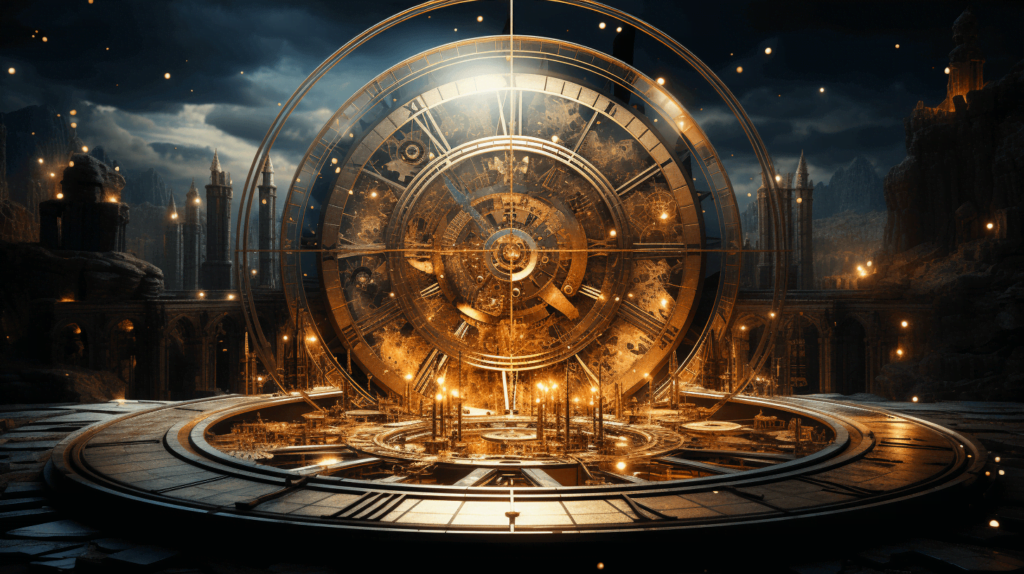
Have you ever found yourself gazing up at the stars on a clear, moonless night, feeling a strange mix of awe and insignificance? Have you ever wondered how you—a speck of stardust on a little blue planet in the cosmic dance of galaxies—could possibly matter? If so, you’ve already dipped your toes into the existential ocean.
Existentialism, at its heart, grapples with our place in the universe and the meaning, or seeming lack thereof, in our existence. It acknowledges the discomfort of being a conscious being, able to ask why we exist in the first place. The French philosopher Jean-Paul Sartre referred to this as the ‘nausea’ of existence—the vertigo that can strike us when we confront our sheer being.
In this chapter, we delve into the existential dilemma and how it ties into our quest for life’s purpose.
The Absurdity of Existence
The term ‘existentialism’ may sound like a mouthful, but its essence is surprisingly relatable. It’s about dealing with the inherent contradictions and uncertainties of human life. As humans, we find ourselves thrown into a world not of our making, confronted by the ultimate freedom to shape our existence, and yet paradoxically bound by the unfathomable randomness of the universe. This strange predicament is often described as ‘absurd.’
The Algerian-French philosopher Albert Camus compared life to the myth of Sisyphus, a man condemned by the gods to push a boulder uphill for eternity, only to watch it roll back down each time. It’s a seemingly meaningless task, yet Camus suggested that we must imagine Sisyphus happy, finding joy and purpose in the struggle itself, despite the outcome.
Existential Freedom and Responsibility
Existentialism argues that we are fundamentally free beings, free to define our existence. However, this freedom isn’t always comforting. As Sartre famously stated,
“Man is condemned to be free.”
We are thrown into existence, without a ready-made purpose, forced to chart our path.
This notion can be disconcerting. The weight of deciding what matters, what our life is about, can feel like too heavy a burden. But it can also be liberating. It means we have the power to shape our narrative, to craft a life imbued with meaning of our own choosing.
Facing the Existential Anxiety
Facing the existential dilemma isn’t about plunging into despair or cynicism. Rather, it’s an invitation to confront the realities of life—its impermanence, its inherent uncertainties, its unpredictability—and still choose to live fully. It’s about wrestling with these challenging truths and emerging stronger, wiser, more attuned to the preciousness of each moment.
The existential perspective can serve as a powerful launching pad for our journey inward. It urges us to question, to ponder, to not accept existence at face value. It inspires us to dig deeper, to examine not just the world around us, but the world within us.
As we embrace the existential question of “What is the point of life?” we begin to realize that perhaps the answer lies in a different question: “Who am I?” But to get there, we need to understand how humanity has tackled this existential question throughout history and across cultures. This will be our journey in the next chapter.
Existentialism doesn’t offer easy answers. It does not provide a neat map to the point of life. Instead, it hands us a compass, nudging us to navigate the terrain of our existence, to embark on a quest to uncover who we are and, ultimately, create our own meaning. And thus, our adventure begins.
Chapter 2:
Cultural and Historical Perspectives – The Many Faces of Life’s Purpose
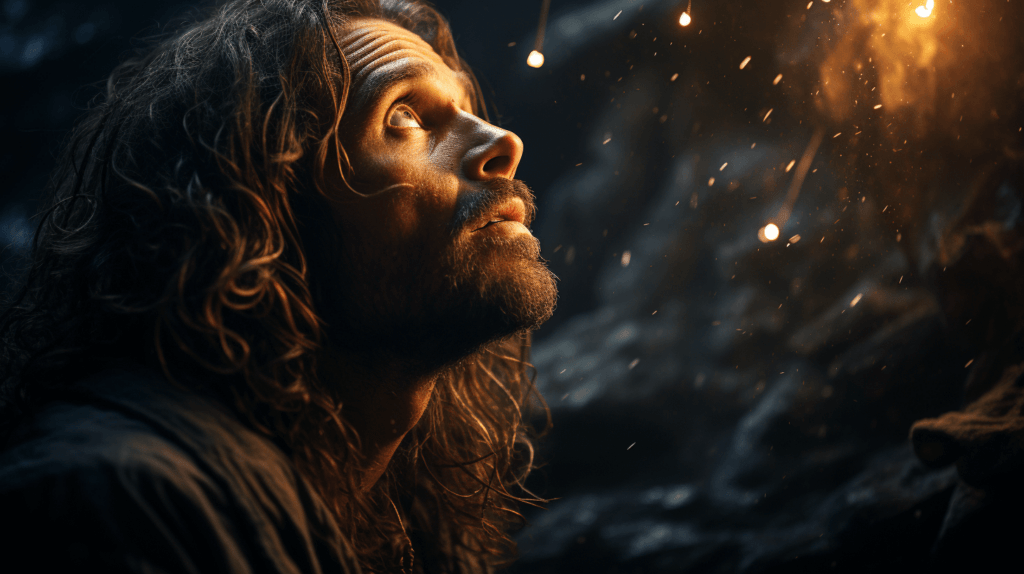
Across time and space, the question “What is the point of life?” has been asked and answered in a multitude of ways. From the ancient civilizations of Egypt and Mesopotamia to modern societies, the tapestry of human culture is rich with reflections on life’s purpose. As we delve into this shared human narrative, remember that each perspective is a piece of a larger puzzle.
Ancient Wisdom and the Point of Life
The Ancient Egyptians saw life as a journey to prepare for the afterlife. They built elaborate tombs and engaged in complex rituals to ensure a successful journey to the next world. The purpose of life, to them, was to live in a way that ensured a harmonious existence after death.
The ancient Greeks, on the other hand, valued the pursuit of knowledge and virtue. The great philosopher Aristotle proposed the concept of “eudaimonia”—the highest human good, often translated as happiness or flourishing. To Aristotle, the purpose of life was to live a virtuous life in accordance with reason.
The Stoics of ancient Rome took this idea further, arguing that a good life was one lived in accordance with nature and accepting of all events, viewing them as part of the natural order of things.
In ancient India, the Hindu tradition outlined the four “Purusharthas” or goals of human life—Dharma (duty/ethics), Artha (prosperity), Kama (pleasure), and Moksha (liberation). The point of life was to harmoniously balance these elements.
The Middle Ages and the Divine
With the advent of the Middle Ages, the purpose of life in much of the Western world became deeply intertwined with Christianity. Life was seen as a test, a temporary stage before the eternal life promised in heaven. Virtue, faith, and service were emphasized, with the ultimate purpose being unity with God.
Meanwhile, in the Islamic world, life was viewed as an opportunity to serve Allah and the community, preparing oneself for the afterlife. The concept of “Taqwa”—piety and consciousness of God—was central to understanding one’s purpose.
Modern Perspectives and the Search for Meaning
As humanity entered the modern era, the question of life’s purpose continued to evolve. The Enlightenment in the 17th and 18th centuries championed reason, science, and individualism. The purpose of life shifted towards the pursuit of knowledge, personal freedom, and societal progress.
In the contemporary world, the question of life’s purpose has become deeply personal. Some people find purpose in work, relationships, or through the pursuit of knowledge. Others, influenced by existentialist thought, see life’s purpose as self-defined.
Simultaneously, we’ve seen a surge of interest in mindfulness, spirituality, and personal growth, as people increasingly look inward for answers.
In Conclusion: A Tapestry of Perspectives
Our journey through cultural and historical perspectives is like a voyage across a vast sea, each wave a different view on life’s purpose. The ancient wisdom traditions, religious beliefs, and modern viewpoints provide us with a rich tapestry of answers to the question “What is the point of life?” Yet, they all seem to point us inward, suggesting that the key to understanding life’s purpose lies within us.
In the chapters ahead, we will turn to science and religion, broadening our understanding before we start the inward journey. As we move forward, let these historical and cultural perspectives illuminate our path. They remind us that our quest is part of an age-old human endeavor, and our individual journey towards self-discovery is a chapter in the grand narrative of human history.
Chapter 3:
Science and the Point of Life – The Cosmos Within Us

Science—the methodical exploration of the natural world—has been our compass, our beacon, guiding us through the murky waters of the unknown. It has been our tool for making sense of our world, from the smallest particles to the vast cosmos. But can science help us uncover the point of life? Can it lead us closer to understanding who we are? Let’s embark on this scientific voyage and find out.
Life through the Lens of Evolution
At first glance, biological evolution might offer a disheartening answer to our question. From this perspective, life’s purpose seems to be survival and reproduction, the perpetuation of our genes. We are the product of countless generations of successful reproducers, each of us a link in an unbroken chain stretching back to the first primitive organisms.
However, there’s more to the story. Evolution also gave rise to our capacity for consciousness, self-awareness, and empathy. It sculpted our brains to yearn for connection, to seek meaning and purpose, to question our existence. It instilled in us the capability for love, creativity, and the pursuit of knowledge—traits that transcend mere survival and reproduction.
The Cosmos and Our Place in It
Astronomy and cosmology present us with an awe-inspiring perspective on life. We’re made of star-stuff, as Carl Sagan famously said
atoms forged in the crucibles of long-dead stars, now part of our bodies. We’re children of the cosmos, a way for the universe to know itself.
While this perspective might seem to diminish us—after all, we’re minuscule compared to the vast cosmos—it can also inspire a profound sense of connection and purpose. We’re part of something grand, an intricate tapestry of existence that spans billions of years and countless galaxies.
The Unanswered Questions of Science
As powerful as science is, it also humbles us with its unanswered questions. We don’t know why the laws of physics are what they are, why there’s something rather than nothing, or how consciousness arises from the workings of the brain.
These mysteries can be unsettling, but they’re also exciting. They remind us that we’re explorers, journeying into the unknown. They invite us to grapple with profound questions, to seek deeper understanding, to ponder the nature of reality—and our place within it.
Towards a Personal Synthesis
So, can science answer the question, “What is the point of life?” Not directly, perhaps. It doesn’t offer a single, definitive answer. But it provides valuable insights and tools for our personal quest.
Science invites us to appreciate the beauty and complexity of life, to recognize our connection with the cosmos, and to marvel at the mysteries we’ve yet to unravel. It reminds us that we’re part of an unfolding story—a cosmic narrative of exploration, discovery, and understanding.
This scientific voyage doesn’t end with the last word of this chapter—it’s an ongoing journey. It’s part of the larger quest we’re embarking on, a quest that will lead us closer to answering not just “What is the point of life?” but also “Who am I?” As we forge ahead, let’s carry with us the wonder and curiosity that science instills in us, and use these tools to delve deeper into the mysteries of existence.
Chapter 4:
The Divine Perspective – Religion and Spirituality in Life’s Purpose
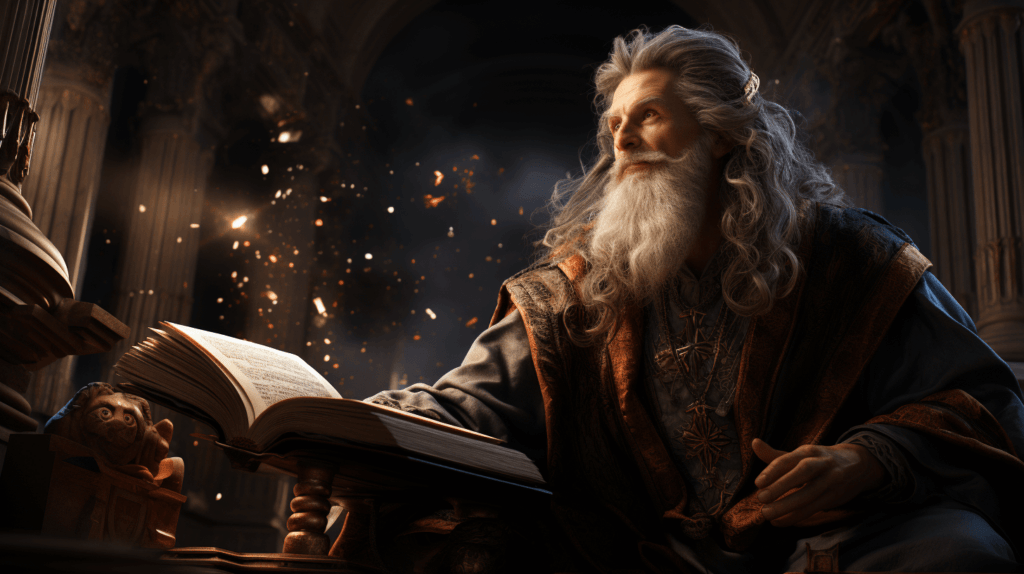
Religion and spirituality have been cornerstones of human culture for millennia, offering frameworks to understand our place in the universe and guiding our search for life’s purpose. As we delve into this realm of divine thought, we will find a vast spectrum of perspectives, each shedding light on the ultimate question of life’s purpose and the quest for self-understanding.
Religion: Pathways to Divine Meaning
The world’s religions present a range of perspectives on life’s purpose. From the monotheistic traditions of Christianity, Islam, and Judaism, life’s purpose is often understood as a journey towards unity with God, guided by principles of love, justice, and righteousness.
Eastern religions like Hinduism, Buddhism, and Taoism often emphasize the journey of self-realization and liberation. Hinduism’s concept of Dharma, for instance, suggests that each individual has a unique purpose, a moral duty. In Buddhism, the purpose of life is understood as liberation from suffering and the cycle of rebirth, achieved through the cultivation of wisdom, ethical conduct, and mental discipline.
Spirituality: The Inner Quest
While religion often provides structured doctrines and rituals, spirituality can be a more individualistic and subjective experience. It involves a personal journey towards self-discovery, often seeking a sense of connection with something larger than oneself—be it the universe, nature, or a higher power.
Many individuals today identify as “spiritual but not religious,” seeking meaning and purpose outside traditional religious structures. They may engage in practices like meditation, yoga, or mindfulness, focusing on personal growth, self-awareness, and connection with others and the world around them.
Mysticism: The Experience of Unity
Mysticism, a strand woven into many religious and spiritual traditions, involves the pursuit of a direct, personal experience of the divine or ultimate reality. Mystics across different cultures have reported experiences of profound unity, where the boundaries between self and other dissolve.
Such experiences often bring about a profound shift in the individual’s understanding of life’s purpose. Rather than seeing life as a quest for individual success or worldly pleasures, mystics often describe the purpose of life as a journey towards recognizing and actualizing this fundamental unity.
Synthesizing the Divine Perspective
Religion, spirituality, and mysticism offer diverse insights into the point of life and the nature of self. They provide us with rich narratives and practices to explore our inner worlds, cultivate our virtues, and connect with something greater than ourselves.
While the specifics vary across different traditions, a common thread runs through them—the emphasis on an inward journey, the exploration of self. The divine perspective reinforces the idea that the answer to “What is the point of life?” is intricately tied to the question “Who am I?”
In the next chapters, we’ll embark on this inward journey, drawing on insights from psychology, philosophy, and contemplative practices. We’ll explore tools and exercises that can help us deepen our self-understanding and uncover our unique sense of purpose. With the knowledge we’ve gathered so far, we’re well-equipped for this next phase of our adventure.
Chapter 5:
The Psychology of Self – Unearthing the ‘I’
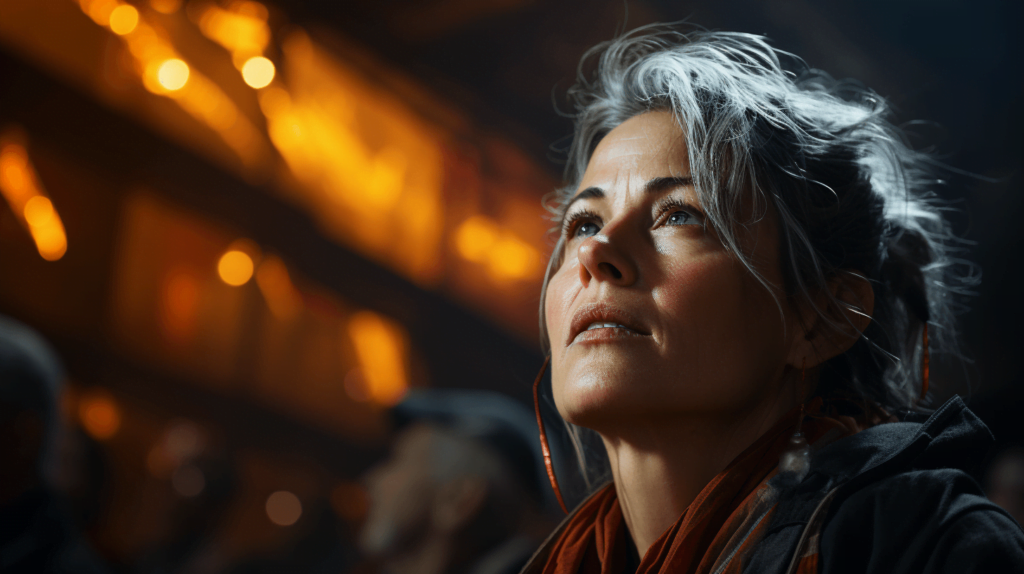
As we venture further into our exploration of life’s purpose and the question “Who am I?”, we now turn to the realm of psychology. This chapter will delve into theories of self, identity, and personal growth, shedding light on our understanding of who we are and how this informs our sense of purpose.
The Many Faces of ‘I’
Modern psychology offers us a complex picture of selfhood. We are not a singular, static entity but a dynamic and multifaceted combination of thoughts, feelings, memories, roles, and relationships. Consider the roles you play in life—parent, child, friend, employee, leader, follower. Each role comes with its own set of behaviors, attitudes, and expectations, shaping different aspects of who you are.
Identity and Self-Concept
Self-concept, as psychologists term it, is our understanding and evaluation of who we are. It’s an amalgamation of our beliefs, self-perception, and how we believe others perceive us. As we navigate through life, our self-concept evolves, influenced by our experiences, relationships, and societal norms.
Our identity—a key part of our self-concept—is often tied to various facets of our lives, such as our values, interests, beliefs, and aspirations. It also encompasses our affiliations—national, racial, cultural, professional, and more. Understanding our identity can provide significant insight into what gives our life purpose and meaning.
The Journey of Personal Growth
Psychologists like Carl Rogers and Abraham Maslow have emphasized the importance of personal growth in our understanding of self and purpose. According to Maslow’s hierarchy of needs, once our basic needs are met, we strive towards self-actualization—realizing and fulfilling our potential.
Personal growth often involves self-exploration and self-improvement. We seek to understand our strengths, weaknesses, desires, fears, and values. We strive to develop our skills, nurture our relationships, and contribute to our communities. This process of personal growth can lead us closer to a sense of purpose in life.
Mindfulness and Self-Awareness
Mindfulness—the practice of paying attention to the present moment non-judgmentally—has been shown to enhance self-awareness. It helps us observe our thoughts, feelings, and actions without getting entangled in them. It creates space for introspection, allowing us to explore our inner world, understand our patterns, and make conscious choices.
Towards Self-Discovery
This chapter’s exploration of psychology provides tools for our journey towards self-discovery. Understanding the multifaceted nature of self, exploring our self-concept and identity, embarking on personal growth, and practicing mindfulness can all illuminate our understanding of who we are.
As we progress through the next chapters, we’ll integrate these insights with those from previous chapters. The wisdom of culture and history, the awe-inspiring perspective of science, the profound insights of religion and spirituality, and the illuminating theories of psychology all come together to guide us in our quest to answer the two intertwined questions: “What is the point of life?” and “Who am I?” The journey is rich, complex, and deeply personal—but remember, the journey itself is as meaningful as the destination.
Chapter 6:
Philosophy and Existentialism – The Freedom to Define
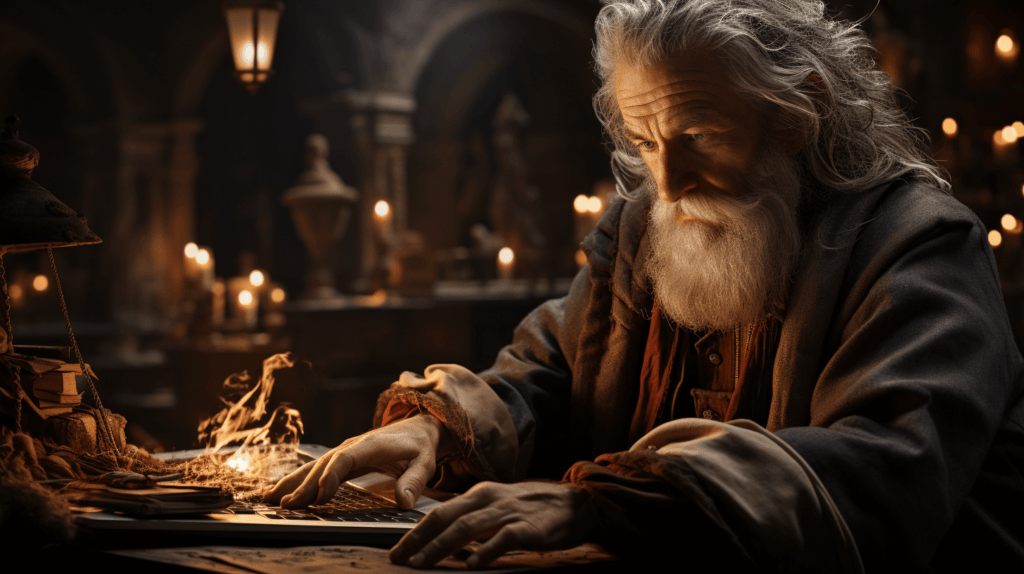
As we journey further into the realms of understanding, philosophy stands as a beacon, illuminating our paths with deep, thought-provoking questions and interpretations. Particularly, existentialist philosophy offers profound insights into life’s purpose and the question of “Who am I?” Let’s embark on this philosophical expedition and uncover the layers of our existence.
The Existentialist Perspective
Existentialism, a philosophical movement that gained prominence in the 19th and 20th centuries, emphasizes individual existence, freedom, and choice. It posits that life doesn’t have an inherent, predetermined meaning. Instead, it’s up to each individual to create their own purpose.
Jean-Paul Sartre, a leading figure in existentialist thought, famously stated,
“Existence precedes essence,”
implying that we first exist and then each individual is free to define their essence or purpose. This can be both liberating and daunting—it’s empowering to know we have the freedom to create our purpose, but the responsibility of such freedom can also be overwhelming.
Meaning in the Absurd
Another significant figure in existentialist thought, Albert Camus, introduced the concept of the ‘absurd’. He recognized the tension between our human desire for meaning and the indifferent, chaotic universe. According to Camus, life is inherently meaningless, and this realization can lead us to feelings of despair, known as ‘the absurd’.
However, Camus also proposed that we can find meaning in embracing the absurd, by acknowledging the inherent lack of meaning in life and still choosing to live passionately and fully. He suggested that
our actions, our rebellion against the absurd, can create a life filled with richness and purpose.
Authenticity and Personal Responsibility
Existentialism places great importance on authenticity—living in alignment with one’s true self and values. It encourages us to be honest with ourselves, to scrutinize our actions and beliefs, and to take responsibility for our choices. This path of authenticity is an essential part of defining our purpose and understanding who we are.
The Interplay of Freedom, Despair, and Purpose
Existentialism acknowledges the despair that can come from the awareness of life’s inherent lack of meaning. But it also sees the potential for freedom, purpose, and authenticity that emerges from this realization. The existentialist perspective invites us to embrace the freedom to define our lives, to face the despair of the absurd, and to live authentically in pursuit of our self-determined purpose.
Existentialism and the Journey of Self-Discovery
As we venture further into the existentialist landscape, we come to understand the significant role we play in crafting our life’s purpose. It’s in this philosophy that we find the freedom to ask ourselves, “What is the point of my life?” and “Who do I choose to be?”
The answers are not found outward but inward, in our capacity to create, to choose, and to live authentically. As we grapple with existentialist thought, we arm ourselves with the courage to face life’s uncertainty and to revel in our freedom to define our purpose. Our journey continues, and with each step, we come closer to understanding our place in the cosmos and uncovering the layers of our self. The voyage isn’t always easy, but it’s in the sailing where we find our strength, our purpose, and our self.
Chapter 7:
The Practice of Self-Discovery – Techniques and Reflections
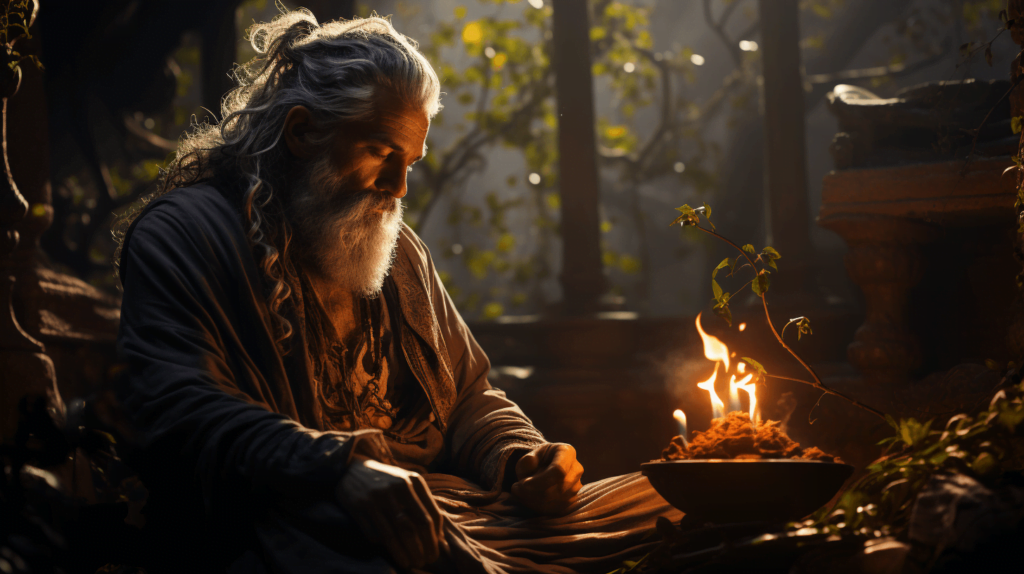
Having delved into the insights from culture, science, religion, psychology, and philosophy, we now stand at a crucial junction. The journey from theory to practice is where we transform our insights into actionable understanding. This chapter is about engaging with techniques and reflections that can guide us on our path to self-discovery and the purpose of life.
Journaling – The Written Voyage
Journaling is a simple yet powerful tool for self-discovery. It provides a space for us to freely express our thoughts, feelings, and experiences. It can be a mirror, reflecting our self-concept, our identity, and our growth. Through consistent journaling, we can track patterns, explore ideas, and make sense of our inner world.
Try to write regularly. Reflect on your experiences, thoughts, and feelings. Ask yourself questions like, “What makes me feel fulfilled?”, “What are my core values?”, “How do I define my identity?” and, “What is the purpose that I want to create for my life?”
Meditation – A Journey Inward
Meditation is an age-old practice that cultivates mindfulness and self-awareness. Through meditation, we can observe our thoughts and emotions without judgment, delve into our inner landscape, and foster a deep sense of peace and clarity.
Various types of meditation exist, from focused-attention and mindfulness to loving-kindness and transcendental meditation. Choose a type that resonates with you and practice regularly. As you meditate, observe your experiences and the insights they bring about your self and your purpose.
Creative Expression – Unleashing the Inner Self
Creativity is an expression of our inner self. Whether it’s through painting, writing, dancing, cooking, or any other creative outlet, we manifest aspects of ourselves that might remain hidden in day-to-day life. Creative expression allows us to explore our identity, our values, our passions, and our purpose.
Embrace activities that allow you to express yourself creatively. Reflect on your creations—what do they reveal about you? How do they align with your sense of purpose?
Service – The Purpose in Giving
Service to others can provide a profound sense of purpose. Whether it’s through volunteering, mentoring, or simple acts of kindness, service connects us to others, fosters empathy, and provides an opportunity to make a meaningful contribution.
Engage in acts of service that resonate with you. Reflect on these experiences—how do they shape your understanding of your purpose and your self?
Existentialist Reflection – Embracing Freedom and Authenticity
Remember the insights from existentialist philosophy—the freedom to define your life’s purpose, the importance of authenticity, the courage to face the absurd. Reflect on these concepts and how they apply to your life. What purpose do you choose for your life? How can you live more authentically?
Synthesizing the Practice
The journey of self-discovery and understanding life’s purpose is not a destination but a continuous process. The tools and techniques discussed in this chapter—journaling, meditation, creative expression, service, existentialist reflection—are guides on this journey.
As we move forward, we must remember that the journey is deeply personal. Our purpose and understanding of our self will evolve over time, shaped by our experiences, reflections, and growth. The question is not merely, “What is the point of life?” and “Who am I?” but also, “Who am I becoming?” and “What purpose am I creating?”
As we close this chapter and this book, remember that the journey continues. Each day is a new opportunity to explore, to understand, to grow. Embrace the journey with curiosity, courage, and compassion. The path of self-discovery and the quest for purpose is a voyage of a lifetime—one that unravels the depths of our existence and illuminates our place in the cosmos.
Chapter 8:
Living Your Purpose – Walking The Path of Self-Discovery
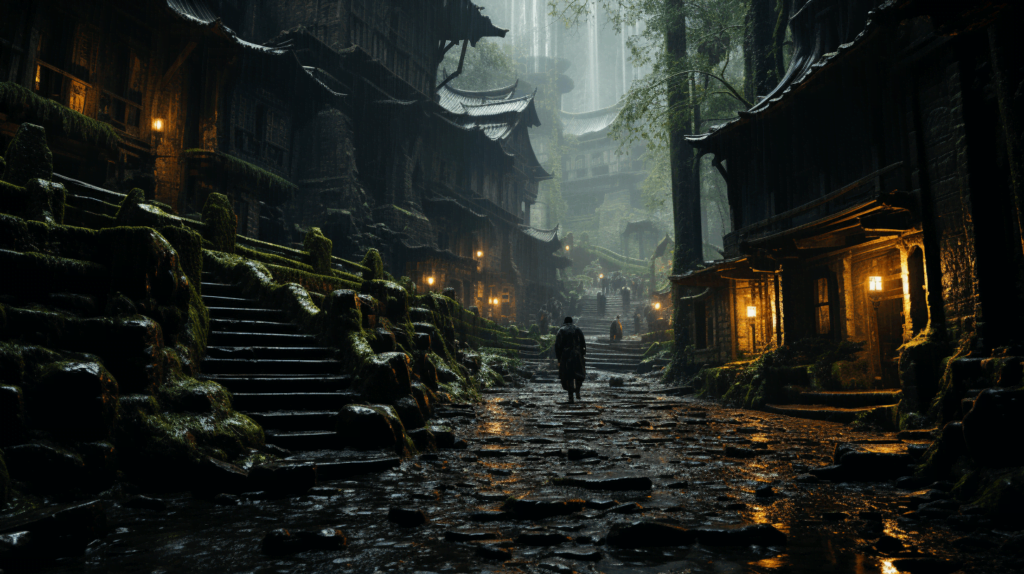
After navigating the depths of history, culture, science, religion, philosophy, and psychology, and then learning practical tools for self-discovery, we come to the heart of the journey: living your purpose. This chapter will offer guidance on integrating your understanding of “Who am I?” into your daily life and shaping a purpose-driven existence.
Mindful Living – Staying Present in Your Journey
To fully embody our purpose and identity, we must learn to be present in each moment. This involves living mindfully, fully engaging with our experiences, and paying careful attention to our thoughts, emotions, and actions.
When we live mindfully, we are more attuned to our purpose and can navigate life in alignment with our self-understanding. We’re able to make conscious decisions that reflect who we are and what we stand for.
Alignment – Living True to Your Self
Our newfound understanding of our identity and purpose serves as a compass, guiding our actions and decisions. However, to fully live our purpose, we must ensure that our actions align with our self-understanding.
Whether it’s our relationships, career choices, lifestyle, or daily habits, each aspect of our life offers an opportunity to express our authentic self and fulfill our purpose. When our actions reflect our purpose and identity, we experience a profound sense of harmony and fulfillment.
Growth and Adaptability – Evolving With Life
Our understanding of self and purpose is not static—it evolves as we journey through life. It’s important to stay open to growth and change, allowing our self-understanding and purpose to adapt to new experiences and insights.
Embrace life’s uncertainties and the potential for growth they offer. Regularly reflect on your self-understanding and purpose, adapting them as you navigate life’s complexities and surprises.
Contributing to the World – Making a Difference
Living your purpose is not just a personal journey—it also involves making a difference in the world around you. Your unique purpose and self-understanding enable you to contribute to the world in ways that only you can.
Identify how your purpose aligns with making a positive impact. Whether it’s through your career, community work, creative expression, or personal relationships, find ways to use your unique gifts, passions, and purpose to enrich the world.
Self-Compassion – Being Gentle on Your Journey
Finally, it’s essential to approach your journey of self-discovery and purpose with self-compassion. The path is not always smooth—there will be challenges, doubts, and setbacks. It’s crucial to treat yourself with kindness and patience, understanding that the journey is a process, and every step, even the stumbling ones, brings you closer to your authentic self.
Living Your Journey – Embodying Your Purpose
As we conclude this book, remember that understanding your purpose and identity is just the beginning. The true journey lies in living your purpose, expressing your authentic self, and contributing to the world in your unique way.
Remember, the question “What is the point of life?” finds its answer in the understanding of “Who am I?” and most importantly in the living of that answer. Each moment offers a chance to live your purpose, to be who you are, and to evolve into who you’re becoming.
This journey of self-discovery and purpose is not a destination but a lifelong adventure. Embrace this adventure with openness, courage, and compassion. Celebrate your unique path and the purpose that fuels it. Remember, life is not just about finding yourself but also about creating yourself. You are the artist of your existence—make it a masterpiece.
Chapter 9:
Embracing the Cycle – Lifelong Journey of Self-Discovery
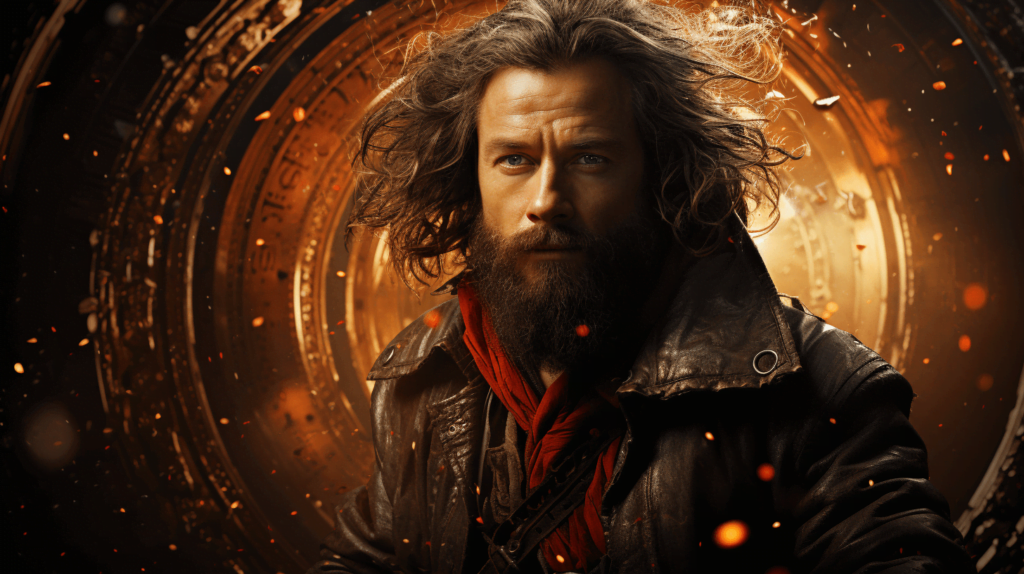
In this final chapter, we consolidate our journey so far and reflect on the cyclical nature of self-discovery and finding purpose. Understanding “Who am I?” isn’t a question we answer once; it’s a question we revisit throughout our lives. Let’s explore how this process evolves and perpetuates in an ever-expanding cycle of personal growth.
Revisiting – Reflecting on Changes and Growth
Every journey starts with a single step, and the journey of self-discovery is no exception. But as we’ve come to learn, it’s a journey with no final destination. We must regularly revisit our thoughts, feelings, actions, and beliefs to ensure alignment with our evolving identity and purpose.
Take time to reflect on how you’ve changed since embarking on this voyage of self-discovery. What shifts in your understanding of yourself have you noticed? How has your purpose evolved?
Realignment – Adjusting the Path
As we evolve, so do our perspectives, experiences, and understandings of ourselves and the world around us. This continual growth may require realignment of our paths. By maintaining flexibility in our approach, we can adapt to changes and ensure that we’re always moving in a direction that resonates with our current self and purpose.
Ask yourself if your current path still aligns with your purpose and identity. If not, how can you adjust your course to better resonate with your evolved understanding of yourself?
Deepening – Expanding Your Understanding
With each cycle of revisiting and realignment, we deepen our understanding of ourselves and our purpose. This deepening is not just about breadth, exploring new aspects of ourselves and life, but also about depth, delving further into our existing understandings.
Take time to dive deeper into your identity and purpose. Ask yourself: How can I expand my understanding of who I am and what my purpose is? What aspects of myself and my purpose would I like to explore further?
Connecting – With Others and the World
A significant part of our journey of self-discovery involves the world outside of ourselves. Our relationships, connections, and the environment we’re part of influence and are influenced by our understanding of ourselves and our purpose. Recognizing this interconnectedness can enrich our journey and broaden our perspective.
Reflect on your relationships and connections: How do they reflect your understanding of yourself and your purpose? How can you enrich these connections in line with your self-discovery and purpose-driven life?
Cultivating Resilience – Embracing Challenges
On this lifelong journey, we will encounter challenges, uncertainties, and setbacks. These are not roadblocks but essential parts of the journey. By cultivating resilience, we learn to view these challenges as opportunities for growth, further enriching our understanding of ourselves and our purpose.
Reflect on the challenges you’ve encountered on your journey so far: What have they taught you about yourself and your purpose? How have they contributed to your resilience?
Celebrating – The Journey and Growth
Finally, remember to celebrate your journey of self-discovery and the personal growth it incurs. This celebration isn’t about reaching a final destination but about acknowledging the journey itself—the insights gained, the challenges overcome, and the person you’re continually becoming.
Take time to celebrate your journey: How have you grown since you started? What aspects of your journey bring you the most joy and fulfillment?
Onward in the Cycle
As this book comes to a close, the journey of self-discovery and purpose-finding continues. Embrace the cyclical nature of this journey—the revisiting, realignment, deepening, connecting, cultivating resilience, and celebrating.
Remember, each moment is an opportunity to live in alignment with your purpose and express your authentic self. Each challenge is a chance to grow. Each connection is a mirror reflecting aspects of your self. And each celebration is a testament to your unique journey.
Indeed, the point of life is found in the endless exploration of “Who am I?” and in living out the answers we find. Your voyage of self-discovery is a lifelong, ever-unfolding journey—embrace it, cherish it, live it.
Chapter 10:
The Final Reflection – A Continual Unfolding

As we reach the final chapter of this book, we pause to reflect. We have traversed a rich landscape of theories, perspectives, and practices that illuminate our quest to answer the question, “What is the point of life?” by exploring “Who am I?”. This chapter offers a final reflection on our journey and looks ahead to the continual unfolding of your personal voyage of self-discovery.
Where We’ve Been – A Look Back
Our journey has taken us from the ancient wisdom of various cultures and religions to the cutting-edge insights of science and psychology. We’ve delved into existentialist philosophy, mindfulness practices, creative expression, and acts of service.
We’ve also learned practical tools for self-discovery and explored how to integrate our evolving understanding of self and purpose into our daily lives. Through revisiting, realigning, deepening, connecting, cultivating resilience, and celebrating, we’ve seen how the journey of self-discovery is a lifelong, cyclical process.
What We’ve Learned – Key Takeaways
Our journey has led us to some key insights:
- The point of life is a deeply personal question that each of us must answer for ourselves.
- Our sense of self—who we are at our core—profoundly influences how we perceive the point of life.
- This understanding of self and purpose is not static—it evolves as we grow, learn, and have new experiences.
- By living mindfully, aligning our actions with our purpose, staying open to growth and adaptation, contributing to the world, and treating ourselves with compassion, we can lead a purpose-driven life.
- The journey of self-discovery is a cycle, not a linear path or a destination.
Moving Forward – Your Ongoing Journey
As our exploration draws to a close, remember that your journey does not end here. With every new day, you’ll continue to grow, learn, and evolve, constantly reshaping your understanding of “Who am I?” and “What is the point of life?”
Stay curious. Keep questioning, exploring, and learning. Allow yourself the freedom to change your mind, to outgrow old beliefs, to discover new facets of yourself and the world.
Embracing the Mystery – The Unending Quest
Ultimately, the journey of self-discovery and finding our life’s purpose is a quest to embrace the mystery that is life. It is about recognizing that we will never have all the answers, and that’s okay. The beauty of life lies in its unending mystery, in the joy of discovery, in the thrill of growth.
So, as you move forward, embrace the mystery. Delight in the unknown. Celebrate the questions, for they are the driving force behind your journey. They push you to explore, to learn, to grow.
In Conclusion – A Personal Invitation
The point of life, the essence of the question, “Who am I?”, the journey of self-discovery—all of these are ultimately about connecting deeply with our inner selves and living authentically.
As we conclude this book, an invitation is extended to you: Continue to seek, to question, to explore. Live authentically. Express your unique self. Walk your path with courage, openness, and compassion.
Remember, life isn’t just about finding the answers—it’s about asking the questions and experiencing the journey. It’s about the continual unfolding of “Who am I?” and “What is the point of life?” It’s about living out your unique answer to these questions, moment by moment, day by day.
As you close this book, know that a new chapter of your journey is just beginning. Treasure it, embrace it, live it.
Chapter 11:
Epilogue – The Beginning of the Endless
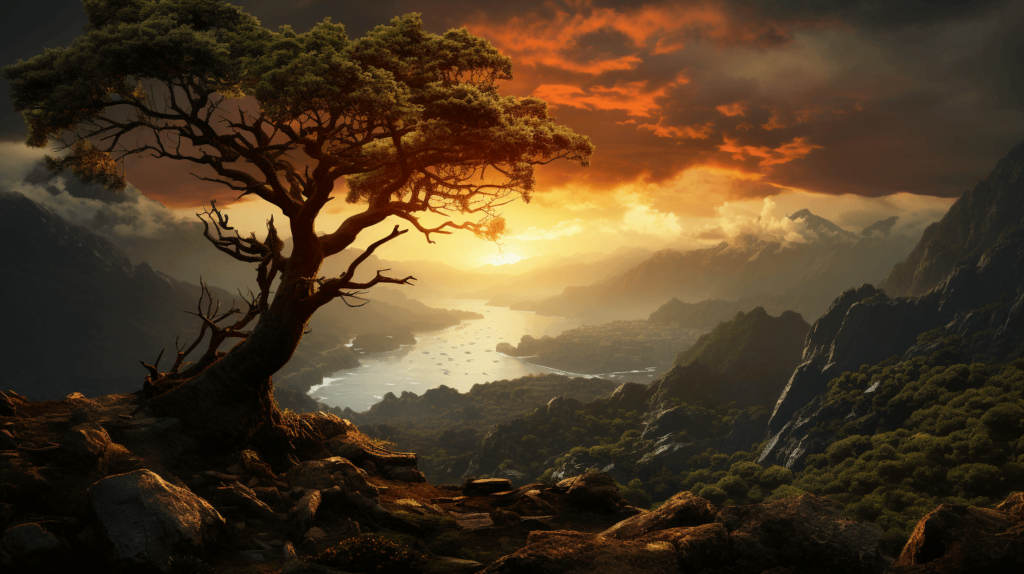
Though we have named this final chapter as the ‘Epilogue’, in the broader context of self-discovery, it represents not an end but a commencement of endless exploration, growth, and understanding. It’s a celebration of the paradox that the more we know ourselves, the more we realize how much more there is to discover.
The Journey so Far – Reflections and Revelations
Our exploration has been profound and transformative, uncovering layers of understanding about our personal and collective experiences of life, meaning, and selfhood. We’ve ventured through various landscapes of wisdom, from philosophical musings to religious teachings, from psychological frameworks to scientific revelations.
Each perspective has shed light on the dual question of “Who am I?” and “What is the point of life?” We’ve come to understand that these questions are inextricably intertwined, that our grasp of life’s meaning is deeply rooted in our understanding of ourselves.
Uncharted Territories – The Unfolding Mystery
As we move forward, there will always be more to explore, more to understand, and more to question. The mystery of life and self continually unfolds, revealing new territories of wisdom and experience.
These uncharted territories are not daunting; instead, they represent the richness and complexity of life. They embody the promise of more growth, more transformation, and more profound understanding of ourselves and our place in the universe.
The Dance of Life – Embracing Change
Our identities, our purposes, and our understandings of life are not fixed; they are dynamic and ever-changing. This is the dance of life—beautiful, complex, and ever-evolving. It invites us to change our steps, rhythms, and movements to the music of our experiences and learnings.
Embracing this dance means recognizing change as a constant companion, a guide leading us to new realizations, challenges, victories, and discoveries.
The Spiral Staircase – Continual Ascension
Our journey of self-discovery is like a spiral staircase. We continually circle back to familiar themes, questions, and insights, but each time at a higher level. With every cycle, we gain a broader perspective, a deeper understanding, and a more nuanced appreciation of our personal journeys.
This spiral staircase doesn’t have an endpoint. It’s an infinite ascent towards greater self-awareness, wisdom, and purpose.
The Grand Tapestry – Weaving Our Unique Threads
Each of our journeys contributes to a grand tapestry of collective human experience. Our individual threads—our stories, experiences, realizations, and transformations—are woven together in a vibrant, intricate pattern that depicts the richness of human life.
Your thread—the story of your self-discovery and understanding of life’s purpose—holds a unique place in this grand tapestry. It adds depth, color, and texture to the collective understanding of what it means to be human.
Looking Forward – The Next Chapter
As we conclude, remember that this ending is also a beginning—the start of your next chapter in the endless book of self-discovery and personal growth. This journey continues with every breath you take, every question you ask, every insight you gain, and every step you take in alignment with your evolving understanding of self and purpose.
In Closing – A Call to Adventure
In the end, the journey of self-discovery is a grand adventure. It calls us to explore, to question, to learn, and to grow. It invites us to dive into the depths of our being, to ascend the heights of understanding, and to dance with the ever-changing rhythm of life.
This adventure is uniquely yours, a testament to your courage, resilience, curiosity, and authenticity. Embrace it fully. Cherish it deeply. Live it authentically.
So, as you turn the final page of this book, know that the adventure of self-discovery and understanding life’s purpose continues. The next chapter awaits your pen, ready to chronicle the beautiful, ongoing dance of “Who am I?” and “What is the point of life?” Your journey continues… on and on, into the beautiful unknown.
Echoes of the Ultimate Question
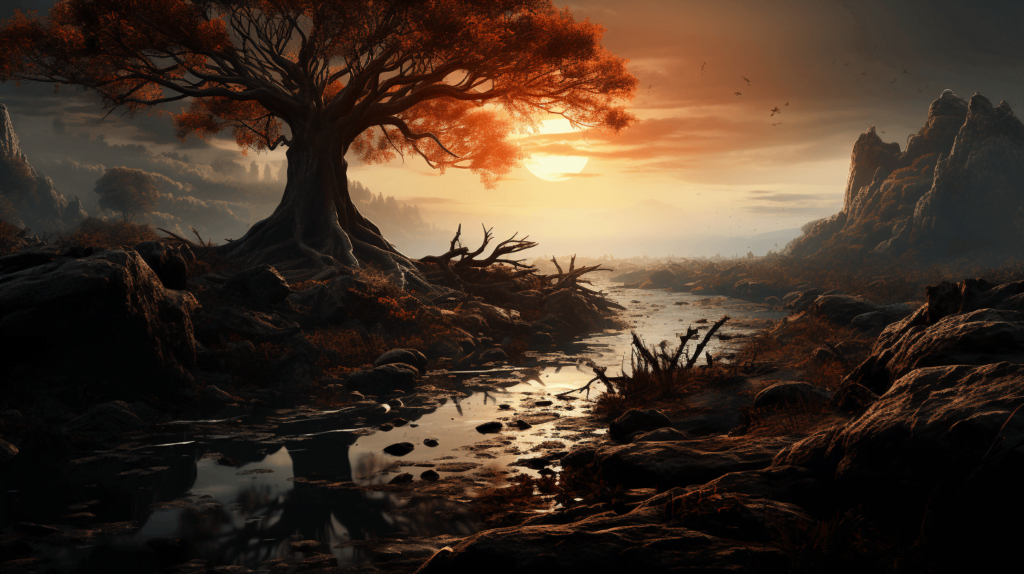
In the heart of all creation, under skies both old and new,
There’s a question asked in whispers, one that’s timeless, always true.
“What is life’s profound purpose?” echoes soft in twilight’s hue,
The answer lies within ourselves, the question’s retort is “Who are you?”
Oh, the journey is a spiral, ever climbing, wide and high,
A path of self-discovery under the vast, cosmic sky.
Through history and science, faith, philosophy’s keen eye,
The question ever lingers, the enigma of “Who am I?”
Through realms of ancient wisdom and the psyche’s hidden door,
Each discovery a reflection of what we’ve seen before.
Each connection deepens understanding, adds to wisdom’s store,
Revealing layers of our being, complexities galore.
With each rotation of the cycle, insights bright as morning’s glow,
Who we are shapes our purpose, in this dance, this ebb and flow.
Our lives, a rich tapestry, individual threads that grow,
Weaving into the grand design, in ways we’ve yet to know.
In the crucible of life, resilience is refined,
A beacon in the shadow, a treasure there to find.
Celebrate each victory, each truth you come to find,
In the endless quest for purpose, and the self, eternally entwined.
The dance of life continues, like the river meets the sea,
The question meets the answer, in an endless harmony.
“Who am I?” leads to purpose, a cycle deep and free,
Unraveling the ultimate question, in a journey to just ‘be’.
This is the road we travel, a voyage into the soul,
Seeking truth in every moment, each experience makes us whole.
So here’s to life’s grand mystery, and the roles we each must play,
In the unfolding story of ‘us’, where we ask, learn and sway.
To seek, to question, to explore, to understand, to strive,
These are the stepping stones on the path of this grand dive.
And though the ultimate question might ever alive,
In its seeking, in its finding, we truly come alive.
